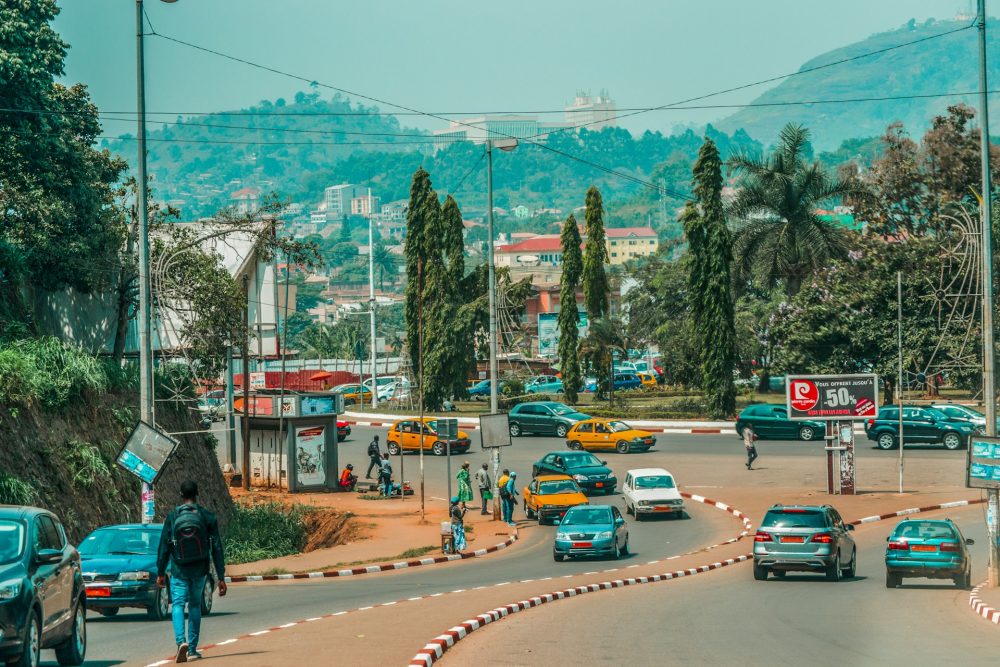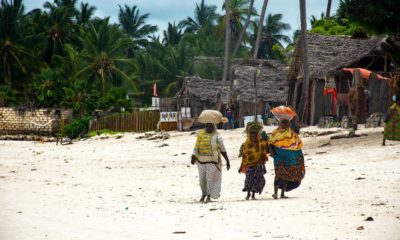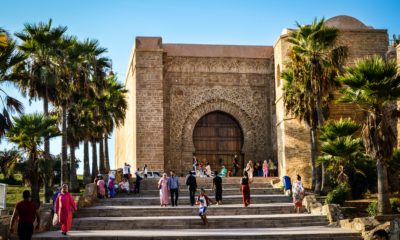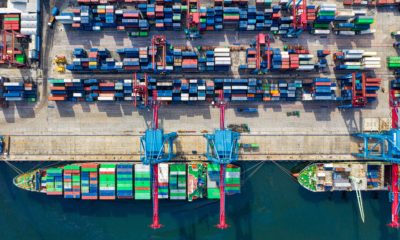Africa
How different African nations are handling the pandemic
While Africa has been broadly successful at containing the pandemic COVID-19 remains an ever present threat. Different African nations have faced vastly different challenges and created different responses to the threat posed by COVID-19. To better understand how Africa is responding to COVID-19 we’ve broken down the latest COVID business news from different African nations.

On Sunday, Africa passed the symbolic mark of 5,000 deaths. According to the Africa (CDC, the African Centre for Disease Control) the continent has had 184,333 cases of Covid-19, and 5,071 deaths due to the disease. South Africa, Egypt and Nigeria are still the two countries most affected by the pandemic.
Hissène Habré returns to prison in Senegal
Hissène Habré returns to prison this Sunday, June 7. The information was made public this Saturday by Senegalese Minister of Justice Malick Sall. On 6 April, the former Chadian dictator was granted a 60-day release permit in the context of Covid-19. According to the prison administration contacted by RFI, Hissène Habré must now return to his cell at the Cap Manuel prison in Dakar, where he has been held since his life sentence in May 2016.
Senegal registered 79 new cases of Covid-19 this Sunday, 76 patients were declared cured. Since the beginning of the epidemic, 4,328 people have been affected by the disease, 2,588 of them have been cured and 49 have died.
200 Mauritanians have been repatriated
Two hundred Mauritanian nationals who had been stranded abroad since the closure of the borders on 25 March due to Covid-19 were returned to their country on Friday evening by plane. Sick people, students and civil servants who were on mission, are among the group who arrived from Spain and Morocco, waiting for other flights from Maghreb as part of a repatriation plan implemented by the government. The returnees tested negative for Covid-19 before flying to Nouakchott.
The Central African Republic is trying to reassure its citizens
CAR has entered a new phase of the epidemic. At least 50 new cases are being detected every day and whole neighbourhoods are now affected. Until now the country seemed to be relatively unscathed with only four deaths due to Covid-19. Among those who tested positive were the mayor of Bangui (now cured), ministers and government personnel. The death of the minister and political adviser to President Georges Isidor Dibert has moved the political class. Such cases in these major institutions raises the question of the continuity of services in this fragile country.
The leader of the opposition platform COD2020 Anicet-Georges Dologuélé wonders about the situation. “We are trying to raise concerns about this situation. I think the state was already blocked in its functioning. The state was already not functioning well. But now that there is this crisis that a certain number of members of the government are sick, that it becomes difficult to bring the government together because we don’t know who is sick and who isn’t, that the ministers themselves could have difficulty bringing their collaborators together because we don’t know who is sick and who isn’t, and the paralysis is already consummated.”
For his part, Pierre Somse, the Minister of Health, points out: “The government is not hiding anything. In fact, in the coming days, on the instruction of the Prime Minister, all members of the government will be tested. The Presidency has asked me to organize a systematic test of all members of the Presidency.”
Production of hydroxychloroquine in the DRC
In the Democratic Republic of Congo, Pharmakina is already starting to produce hydroxychloroquine to treat coronavirus despite the controversies that have arisen. In addition to this drug, the company also produces injectable quinine to treat malaria. The governor of South Kivu officially inaugurated the production line of these two products on Friday in Bukavu, where the plant is located, in the province of South Kivu.
According to the pharmacist in charge of Pharmakina, Dr. Martial Kanyonyo, “Hydroxychloroquine is a synthetic molecule that Pharmakina has imported, under extremely constraining conditions in an atypical global economy characterized by confinement. Despite all these constraints, Pharmakina has done everything possible to ensure that today we have the first doses of hydroxychloroquine in Bukavu, not only to ensure a continuous supply, but also to ensure that clinicians have an assured product. »
However, the country of import was not revealed. Dr. Martial Kanyonyo believes in the effectiveness of this drug which will be available in pharmaceutical depots from this Monday: “The countries that have used hydroxychoroquine report very good results in the outcome of Covid-19 and come out with low mortality rates. This product is presented in boxes of 20 tablets or one cure, or a box of 100 tablets or five cures and has been developed as a reference to plaquenin. In fact, since the world has been confronted with the horrors of the Covid pandemic, all the governments of the world have endeavoured to find appropriate treatments for it and in the DRC the national response commission has adopted the use of hydroxychoroquine in 200 mg tablets. »
Last March, President Félix Tshisekedi considered that it was urgent to produce chloroquine in industrial quantities in the face of the coronavirus. The agro-industrial company Pharmakina specializing in the manufacture of quinine boasts 60 years of experience. It has 3800 hectares of quinquinas in North and South Kivu and hundreds of hectares in neighbouring Rwanda. Currently, the province of South Kivu has 70 confirmed cases of coronavirus. 157 new samples have been sent to the INRB laboratory in Kinshasa for testing. Governor Théo Ngwabidje believes that this product will go some way to limiting the damage caused by Covid-19.
African aviation industry is predicted to lose more than $8 billion due to the pandemic
Since the beginning of the COVID-19 lockdowns, the Association of African Airlines (AFRAA) has twice made projections on the loss of revenue that this health crisis will cause in the sector. The latest estimate, made on 14 May, suggests a loss of $8.1 billion this year, compared to $4.4 billion estimated two months earlier.
“With the hypothesis that, during the third quarter of 2020, the airlines will be able to resume 40% of their activity and during the last quarter of 2020, 70% of their activity. Once again, this will depend on the decisions that will be taken by the different States regarding the opening of borders. Therefore, we will redo an estimate on 15 June 2020”, said Abderamane Berthé, Secretary General of the Association of African Airlines.
Parks to reopen in South Africa
South Africa, still the country most affected by the epidemic, with more than 43,000 cases and 900 deaths, is, on the other hand, living at the pace of deconfinement. The authorities announced that the national parks will reopen on Monday. The tourism sector, especially that of safaris, is important for the South African economy, which has been hard hit by the crisis. These parks welcome more than 6 million tourists every year.
The blues of Moroccan and Tunisian craftsmen
Without income for almost three months because of the Covid-19 pandemic, local craftsmen in North Africa are struggling. The Minister of Tourism and Handicrafts Nadia Fettah has recently discussed ways to help the sector, such as the creation of exhibition spaces in supermarkets, for this sector which employs more than 2 million people – 20% of the working population – including about 230,000 traditional craftsmen. Crafts represents about 7% of GDP, with an export turnover of nearly 1 billion dirhams last year (91 million euros).
Despite their economic weight, artisans work in precarious conditions, without social security coverage, with a distribution network limited to occasional sales and word of mouth, like all small trades in the Maghreb.
In Tunisia, where the crisis of the new coronavirus has plunged small craftsmen in the same distress, the National Crafts Office (ONAT) is working on an electronic platform to open up opportunities in Europe at the end of the year and intends to multiply small exhibitions in hotels.
(Featured image by Ralph_Rybak via Pixabay)
This article may include forward-looking statements. These forward-looking statements generally are identified by the words “believe,” “project,” “estimate,” “become,” “plan,” “will,” and similar expressions. These forward-looking statements involve known and unknown risks as well as uncertainties, including those discussed in the following cautionary statements and elsewhere in this article and on this site. Although the Company may believe that its expectations are based on reasonable assumptions, the actual results that the Company may achieve may differ materially from any forward-looking statements, which reflect the opinions of the management of the Company only as of the date hereof. Additionally, please make sure to read these important disclosures.
First published in RFI Afrique, a third-party contributor translated and adapted the article from the original. In case of discrepancy, the original will prevail.
Although we made reasonable efforts to provide accurate translations, some parts may be incorrect. Born2Invest assumes no responsibility for errors, omissions or ambiguities in the translations provided on this website. Any person or entity relying on translated content does so at their own risk. Born2Invest is not responsible for losses caused by such reliance on the accuracy or reliability of translated information. If you wish to report an error or inaccuracy in the translation, we encourage you to contact us.

-

 Africa2 weeks ago
Africa2 weeks agoAir Algérie Expands African Partnerships
-

 Cannabis22 hours ago
Cannabis22 hours agoAurora’s Electric Honeydew Debuts in Poland, But Shared Registry Raises Patient Caution
-

 Markets1 week ago
Markets1 week agoRising U.S. Debt and Growing Financial Risks
-

 Africa5 days ago
Africa5 days agoCameroon’s Government Payment Delays Exceed 200 Days, Straining Businesses and Public Finances
























